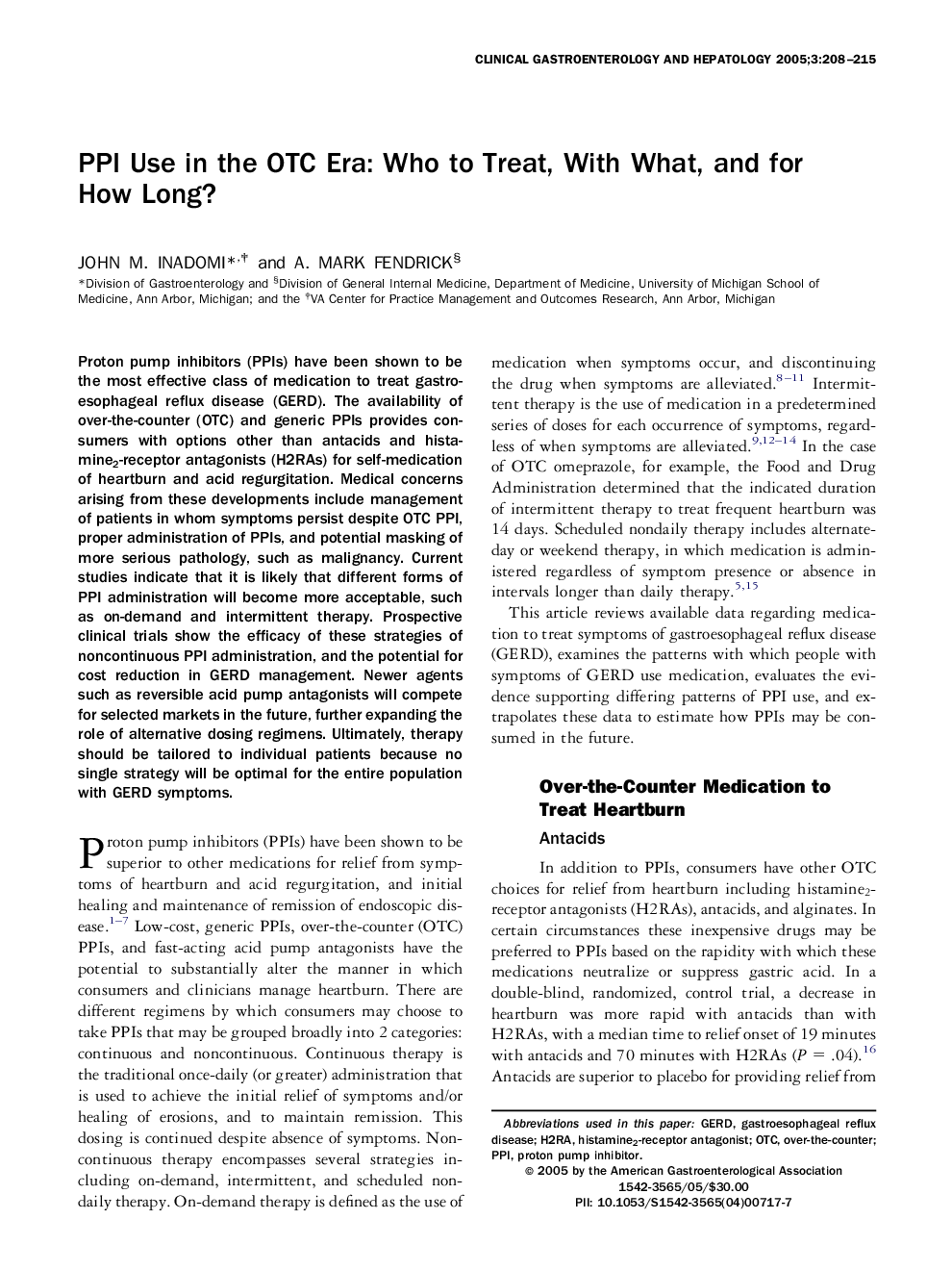| Article ID | Journal | Published Year | Pages | File Type |
|---|---|---|---|---|
| 9241845 | Clinical Gastroenterology and Hepatology | 2005 | 8 Pages |
Abstract
Proton pump inhibitors (PPIs) have been shown to be the most effective class of medication to treat gastroesophageal reflux disease (GERD). The availability of over-the-counter (OTC) and generic PPIs provides consumers with options other than antacids and histamine2-receptor antagonists (H2RAs) for self-medication of heartburn and acid regurgitation. Medical concerns arising from these developments include management of patients in whom symptoms persist despite OTC PPI, proper administration of PPIs, and potential masking of more serious pathology, such as malignancy. Current studies indicate that it is likely that different forms of PPI administration will become more acceptable, such as on-demand and intermittent therapy. Prospective clinical trials show the efficacy of these strategies of noncontinuous PPI administration, and the potential for cost reduction in GERD management. Newer agents such as reversible acid pump antagonists will compete for selected markets in the future, further expanding the role of alternative dosing regimens. Ultimately, therapy should be tailored to individual patients because no single strategy will be optimal for the entire population with GERD symptoms.
Keywords
Related Topics
Health Sciences
Medicine and Dentistry
Gastroenterology
Authors
John M. Inadomi, A. Mark Fendrick,
